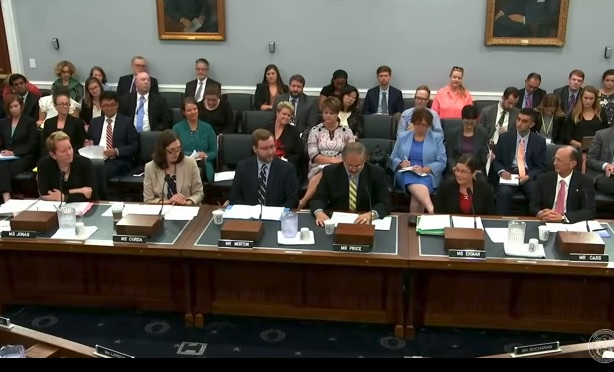- Implement a new minimum benefit of 15% of the average wage index;
- "Modernize" the Social Security benefit formula, which is a euphemism for reducing future benefits for those now 54 and younger;
- Increase Full Retirement Age to 70 between now and 2040;
- Eliminate the retirement earnings test for those who are under Full Retirement Age;
- Eliminate auxiliary benefits for high wage earners.
The plan also includes changes in disability benefits (begins at page 74):
- Enact a benefits offset experiment that would reduce disability benefits by $1 for every $2 earned (they must not know that this experiment is underway already);
- Allow FICA reductions for employers with high rates of employee retention, which is supposed to help handicapped people stay employed (which would disadvantage manufacturers);
- Require employment in six of the last ten years, instead of five;
- Time limited disability benefits for some recipients;
- "Update" the grid regulations;
- Make disability benefits contingent on medical improvement (I don't think they meant to say that but that's what they said);
- Prevent those drawing unemployment benefits from drawing disability benefits;
- Eliminate withholding of attorney fees for representing claimants (at least I think that's what they're saying but they only thing clear about it is that they bear a lot of ill will towards attorneys);
- Close the record "after a reasonable period of time";
- Require Social Security to conduct periodic reviews of ALJ decisions, particularly those of "outlier" judges;
- Prohibit reapplications within 12 months of a denial;
- Increase the waiting period for Medicare from 24 months to 60 months;
- Eliminate the ability to apply for both early retirement and disability benefits at the same time;
- Allow employers and employees a reduced FICA rate if the employer provides long term disability benefits.


